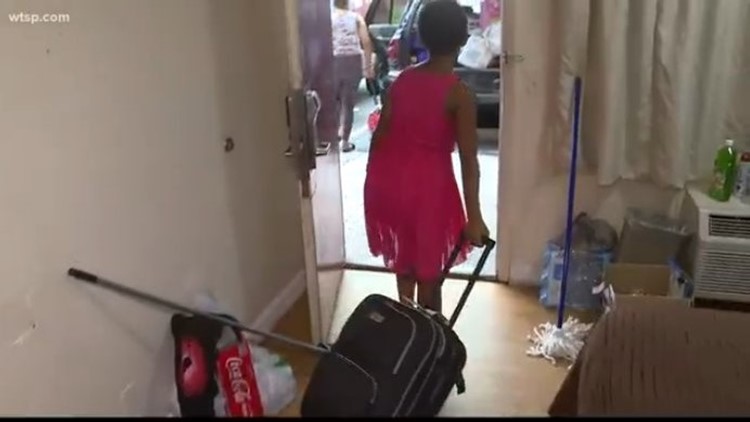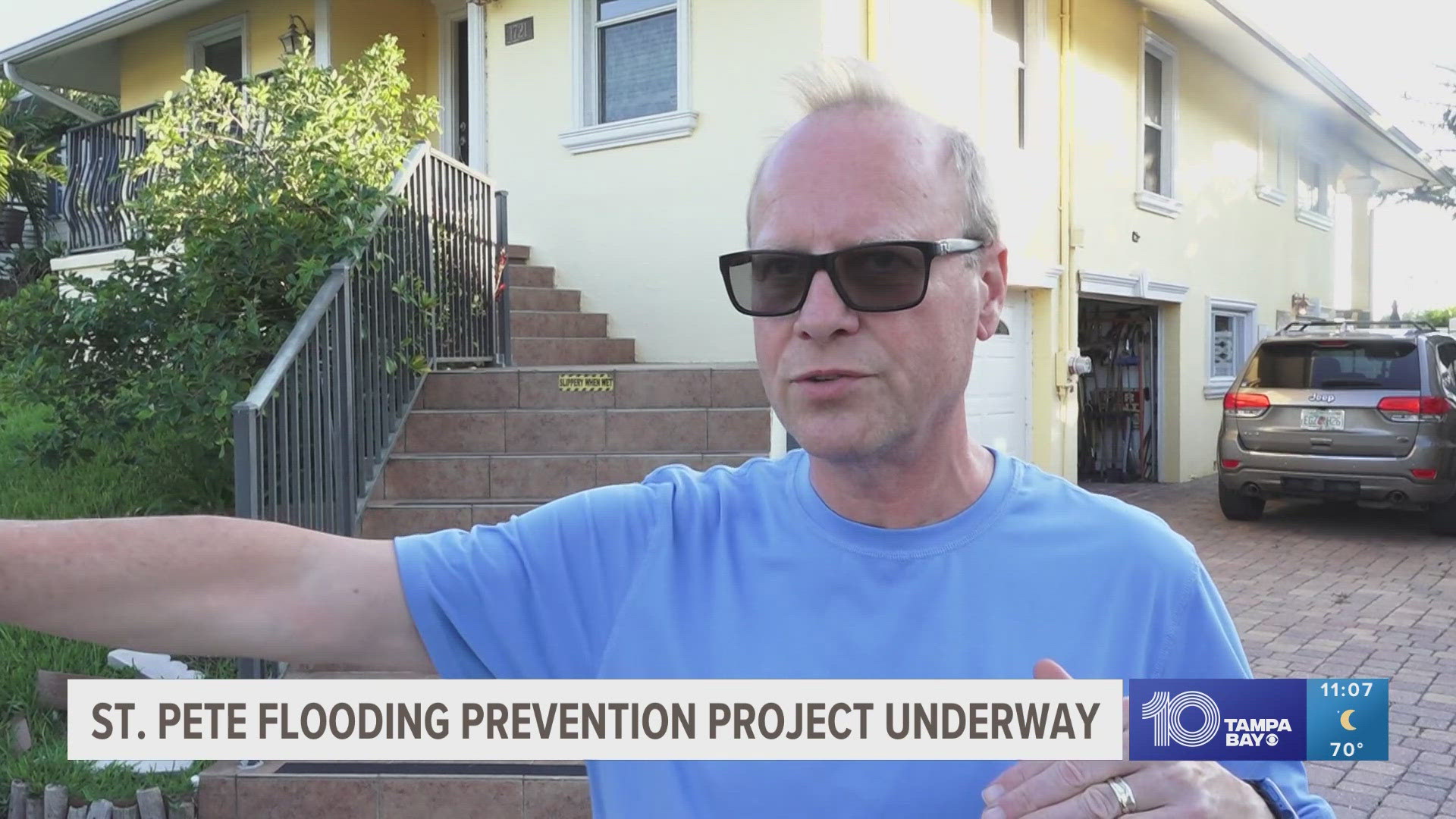It’s been 10 months since Hurricane Maria devastated U.S. territory Puerto Rico. As of Friday, the Federal Emergency Management Agency says there are still 1,050 families in hotels under the Transitional Sheltering Assistance program.
The deadline for those families to lose the rooms has been extended by two weeks to Aug. 7. But the people affected say FEMA continues to kick the can down the road, instead of addressing a glaring problem which is helping the U.S. citizens, who lost everything, find affordable housing.
“These short-term extensions are not what we need at all,” said Jeannie Calderin, creator of Somos Puerto Rico Tampa. “We need to stop putting a band-aid solution by putting people in hotels when really what they need is low-incoming, affordable housing. Enough is enough.
"FEMA has spent millions or billions in hotels and it’s not necessary. Because people who lost it all and are starting fresh here need affordable housing and a stable place they can call home, especially if they have kids.”
We asked FEMA officials, “Why is the original assistance ending? With a clear need for more help, why does a judge need to make extensions instead of FEMA providing enough necessary help?”
FEMA responded:
“FEMA’s Transitional Sheltering Assistance (TSA) program is a short-term sheltering option and is meant to serve as a bridge to other long-term housing solutions like the Direct Lease, Multifamily lease & Repair and Rental Assistance programs.
"Since the beginning of the program, FEMA has had a team of case workers providing one-on-one assistance to families that are in the TSA program. Over the last ten months, FEMA has been working with its federal partners, social service agencies and non-profit organizations to assist survivors in developing their recovery plans to move forward to longer-term, stable housing solutions.
"Additionally FEMA is also paying for Transportation Assistance and began contacting families in early May to see if they were interested in flying back to return to the island. Through Transportation Assistance, FEMA will provide direct payments to airlines to cover the cost of airfare, up to $100 in luggage costs per household member and pet fees.”
We also asked FEMA, “Where can those families go for the help they need, once FEMA assistance expires?”
FEMA said it provides these services:
- Transportation Assistance - Part of the programs available to Puerto Rican survivors that are staying in the mainland is aerial transportation assistance. On May 3, FEMA announced transportation assistance back to Puerto Rico for families who remain in the TSA lodging in the continental U.S. Survivors who are checked into a hotel participating in FEMA’s short-term sheltering program on May 3 can call 800-372-1705 to book a flight to Puerto Rico.
- Caseworkers: Since the beginning of the program, FEMA has had a team of bilingual caseworkers providing one-on-one assistance to families that are in the TSA program in Puerto Rico and CONUS to assess disaster-related needs, help develop a personal disaster recovery plan and connect them with additional resources, including housing and financial assistance. Survivors can call the hotline at 855-742-5993 from 7 a.m.-7 p.m. For TTY, visit www.PuertoRicoRelay.com/tty.
- Health and Human Services: FEMA assigned the Department of Health and Human Services Administration for Children and Families (HHS-ACF) to provide case management support to states requesting additional support for evacuees from Puerto Rico.
- HHS-ACF has connected survivors with assistance including: healthcare access, child services, clothing, employment, food, financial resource, furniture, housing, legal, senior services, and transportation and continues to work with state governments, non-governmental organizations, and FEMA to help guide survivors in creating their personal long-term recovery plans.
- Rental Assistance: Eligible applicants may receive Rental Assistance based on the Fair Market Rent (FMR) that is established by HUD at any location of their choosing including Puerto Rico or the mainland.
- Survivors who wish to remain in the continental U.S. after the Transitional Sheltering Assistance program ends should visit www.fema.gov/disaster/4339 to view a list of services around the country that may provide help.”
FEMA also announced earlier this month that Transportation Assistance for “Puerto Rico disaster survivors” will be extended to Aug. 30. That assistance covers the cost of airfare, luggage and pet fees for their return to Puerto Rico.
But many families we spoke with don’t want to go back to a U.S. territory that’s still without power, un-replenished resources, disrupted school systems and more. They want to work hard to make it work here in Tampa.
“We need affordable housing," said Luz Moreno, a U.S. citizen who is currently displaced. "That’s what I’m asking for from FEMA, help us get a house and we will pay the rent, pay all the bills, work hard and never ask for anything else. That’s it.”
►Make it easy to keep up-to-date with more stories like this. Download the 10 News app now.
Have a news tip? Email tips@wtsp.com, visit our Facebook page or Twitter feed.



